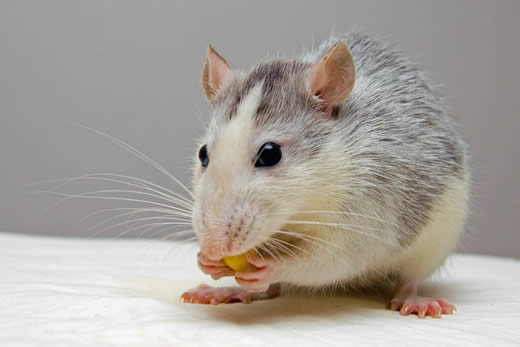Is Animal Obesity Linked to Weight Loss Problems in Humans?
The recent discovery that animal obesity levels in the United States are growing despite there being no obvious cause could be linked to weight loss problems in humans and finding that cause could unlock the secrets that have been eluding us for so long.
Several avenues of research are being followed to find clues as to the cause.
Unexpected Phenomenon
 The study on obesity occurrences in animals in the United States was undertaken by top researcher David Allison, from the University of Alabama in Birmingham.
The study on obesity occurrences in animals in the United States was undertaken by top researcher David Allison, from the University of Alabama in Birmingham.
Allison conducted this study as a result of noticing an unexpected phenomenon where laboratory monkeys were gaining weight for no apparent reason.
Allison found in his study of 8 species covering 20,000 lab and domestic animals that even where their diet was tightly regulated, there was no apparent direct effect on the weight gain. Even with as many as 24 control groups, all of the animals gained weight over a period of 10 years.
The level of weight increase was different depending on the animals gender, even though increases were noted in 100 percent of those involved in the study.
Allison also noted that the weight gain differed a little depending on habitat, where rural rats were less likely to gain as much weight as urban rats. As for the gender differences, female animals tended to gain more weight than their male counterparts.
Several Theories Being Analyzed
There are some current theories that are being analyzed. One is that the rise in obesity is caused by a known obesity virus called adenovirus. This virus affects humans as well as animals.
Also being analyzed are pathogens which are hormone-disrupting compounds that are being exposed to animals and humans even prior to birth. There are a number of such compounds used in agriculture that may need to be more rigorously tested for their long-term effects on human as well as wild animal health.
Another avenue for consideration is sleep disruption and in particular, light pollution.
Light pollution could turn out to be more than a problem affecting astronomers and the ability of their sensitive equipment being able to resolve faint, distant light sources. It could also have an adverse effect on our ability to sleep by interfering with our body's natural circadian rhythm that plays a crucial role in regulating the body's natural healing and repair processes that occur during sleep.
It is already well understood that when we lack sufficient, good quality sleep, we can be more prone to weight increase through imbalances in the digestive process as well as experiencing cravings to consume high calorie food when feeling tired during the day. Anything that could be disturbing night time sleep such as it not being dark enough for the body to manufacture sufficient melatonin (the sleep hormone) could be a potential cause of weight gain in animals as well as humans.
If the mysterious rise in animal obesity can be solved, there could be possibilities for uncovering more effective theories on human obesity and fat loss than are currently in existence.
[BACK TO TOP]
Posted on Wed, 01 Dec 2010 in News | 0 Comments